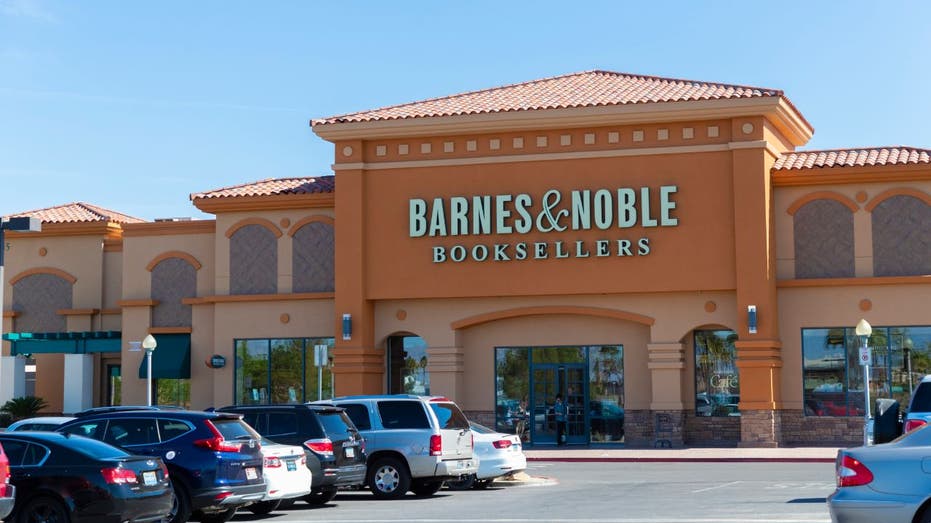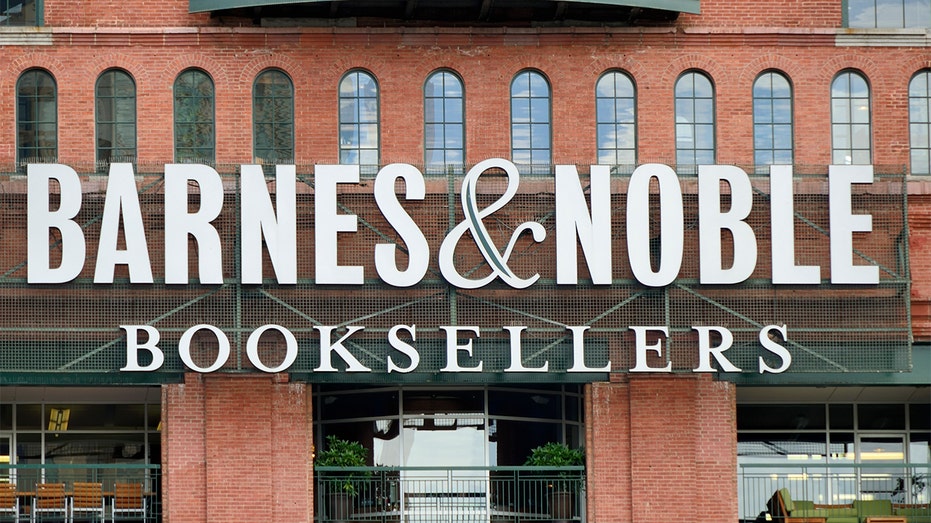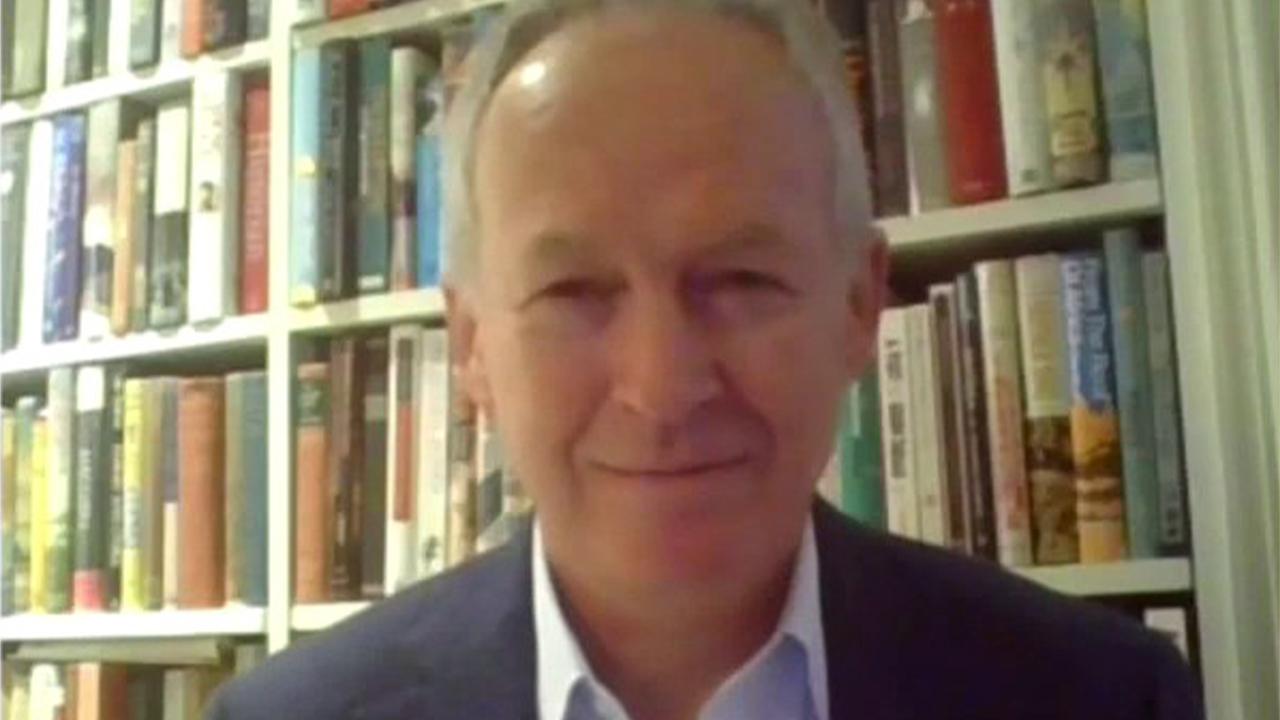Barnes & Noble’s new boss tries to save the chain — and traditional bookselling
Bookseller abandons strategy that made it a behemoth
A year ago, John Radford had little control over the book selection at the Barnes & Noble store he manages in Idaho Falls, Idaho. Executives in New York decided which titles to carry. The retailer's 600-plus stores were expected to follow that blueprint.
Mr. Radford had to stock dozens of James Patterson and John Grisham books, even though there wasn't that much local demand. Often, he'd have to return about half the inventory after a few months.
These days, he is the one calling the shots.
Led by Chief Executive James Daunt, Barnes & Noble Inc. is abandoning the strategy that made it a bookselling behemoth two decades ago -- uniformity designed to create economies of scale and simplify the shopping experience. Instead, the company is empowering store managers to curate their shelves based on local tastes.
In recent months, Mr. Daunt has cut the ranks of once-powerful staffers who supervised large groups of stores and fired nearly half of the company's New York-based book buyers, powerful tastemakers who decided which titles stores should carry. In the process, he has severed decadeslong relationships with publishers who paid to have their books placed in stores.
Mr. Daunt has made the most of pandemic-related closings in the spring to renovate and modernize stores. He also runs Waterstones, the U.K.'s largest bookstore chain, where his attention to detail includes the types of tables he thinks are best for book display -- small round ones, not large square ones.

Barnes & Noble (iStock)
It's the most ambitious restructuring ever undertaken at the company, one that will help determine the future for traditional bookselling. Mr. Daunt, who took the reins after hedge fund Elliott Management Corp. bought Barnes & Noble in August 2019, has little margin for error.
Barnes & Noble has suffered seven years of declining revenue in the face of Amazon.com Inc.'s dominance in online retail. The pandemic crushed sales in big cities, with revenue down 50% at major metropolitan stores, as well as the in-store cafe business.
In Mr. Daunt's view, the very survival of bookstores is on the line. "I don't think we have any God-given right to exist," he recently told a group of publishing-industry professionals. "How is it that bookstores do justify themselves in the age of Amazon? They do so by being places in which you discover books with an enjoyment, with a pleasure, with a serendipity that is simply impossible to replicate online."
WALMART HOLIDAY DRONE LIGHT SHOW LAUNCHES IN 8 US CITIES FOR THE HOLIDAYS
In an interview, Mr. Daunt said empowering local store managers is central to his plans. "At the end of the day, I expect to give the booksellers complete freedom in all the things that I think should matter," he said. "Freedom to put the books wherever they like, display them however they like, arrange them however they like."
Mr. Radford, whose Idaho Falls store is tucked between a Macy's and a J.C. Penney at the Grand Teton Mall, has begun offering books from homegrown literary noir stars such as C.J. Box and Craig Johnson, who write bestselling mystery series set in nearby Wyoming.
"This feels so much better," he said. His store has increased profits this year.
There are limits to the authority given to store managers like Mr. Radford. Book buyers in New York are still in charge of purchasing newly published books for the company. Local managers receive those titles, decide where to put them in the store, and later decide how many to reorder, if any. They also have the power to refresh their stock of older books.

(iStock)
On top of trimming the ranks of corporate book buyers and district managers, Mr. Daunt closed some of Barnes & Noble's most iconic branches, including the East 86th Street outpost in Manhattan that housed one of New York City's most impressive art-book selections. "We've closed a couple of -- frankly -- albatross stores," Mr. Daunt said.
The pending acquisition of book publisher Simon & Schuster by Penguin Random House, a unit of German media company Bertelsmann SE, could create new problems for Barnes & Noble. The resulting enterprise, which will account for about one-third of all print books sold in the U.S., would have more power to press for higher prices and better retail display on behalf of its authors, said Laurence Kirshbaum, a literary agent and former publishing executive. "This world is about leverage," he said.
A Penguin Random House spokeswoman said that with the acquisition, the company "will take the same approach it always has: to partner with retailers to help them succeed and to preserve a diversity of choices in the book ecosystem."
Mr. Daunt's plan abandons some of the economic efficiencies that come with stocking the same inventory in all stores, such as bigger discounts from some publishers for bulk orders.
"As you let the stores diverge, a quarter will be brilliant and a quarter will be absolutely terrible," Mr. Daunt said. "A significant number of your stores will become worse, not better. Then you teach and encourage them and, in time, everybody becomes better."
Barnes & Noble could lose revenue from some publishers who paid to have their books displayed prominently in stores. Mr. Daunt wants to showcase books based on their merit. Several publishers have pushed back.
"The prerogative of the publisher is that they can say, 'You aren't giving me the showroom, so I'm taking the money away,' " Mr. Daunt said. "But it would be illogical if I am selling more books, more intelligently."
Morgan Entrekin, the publisher of Grove Atlantic, a publisher whose authors include Lily King, Jim Harrison and Mark Bowden, said Mr. Daunt's model "levels the playing field" while emphasizing the chain's thousands of experienced booksellers who are enthusiastic readers. "It also lessens Barnes & Noble's dependence on books sold by Target and Walmart," he said.
Barnes & Noble went through several unsuccessful turnaround attempts, including new store layouts and a greater emphasis on toys and gifts, as it churned through five CEOs between 2013 and 2019.
CHEESECAKE FACTORY SETTLES SEC CLAIMS OF MISLEADING INVESTORS ABOUT CORONAVIRUS FALLOUT
The past several chief executives were brought in for their expertise in big-box retail, with little or no experience in selling books. Mr. Daunt, by contrast, has been a bookseller for three decades and sees it as an art form.
Tall and lanky at age 57, Mr. Daunt moved frequently while growing up, the child of a British diplomat. He graduated from the University of Cambridge in 1985 with a degree in history, then worked for three years as an investment banker in New York and London at what is now JPMorgan Chase & Co.
Mr. Daunt left banking because "my girlfriend, Katy Steward, felt it wasn't what I should be doing. She was more imaginative than me." He later married Ms. Steward; they have two daughters.
He's a serious reader of literary fiction, history and biographies, and opened Daunt Books in 1990 in London, when he was 26 years old. After he negotiated terms with one of the country's largest publishers, the publishing house decided to renegotiate, confident Mr. Daunt would have little choice, said Brett Wolstencroft, who knew Mr. Daunt at Cambridge and joined him soon after the first store opened. Instead, Mr. Daunt threatened not to buy any more books.
"It was early days, and it established that he was serious," said Mr. Wolstencroft. Daunt Books grew to become a group of nine independent bookstores that Mr. Daunt still owns. An inveterate traveler, he has visited such countries as Uzbekistan, Ethiopia and Syria, cooks and is an opera buff.
He joined Waterstones, where he remains CEO, as managing director in 2011. After he took the job at Barnes & Noble, Mr. Daunt rented an apartment in New York City, though he hasn't been there since late March.
Mr. Daunt first championed the tactic of ceding control to local managers at Waterstones, which was losing money when he got there. It took him four years to make the chain profitable again.
Waterstones has a 3.5% return rate. That's the number of unsold books that retailers return to publishers. Barnes & Noble's return rate is about 25%, and as high as 50% on new titles.
"A good bookseller has little to no returns," Mr. Daunt said. "When you let the stores choose what they stock and choose how they price it, the returns more or less completely disappear."
At one time, Barnes & Noble focused on using its bricks-and-mortar presence to beat independent bookstores on price and selection. Now the task is to compete with Amazon. Barnes & Noble's high fixed costs makes it difficult to match Amazon's rates.
Mr. Daunt is working to improve Barnes & Noble's online store, but his focus is mainly on physical stores. "It's in the stores where you win the loyalty from your customers," he said. "If you get your stores right, your online sales will follow. If your stores are crap, your online will be as well."
Mr. Daunt is passionate about organizing books the proper way, down to the shape of display tables -- round ones are the best, he says. He's pushed Barnes & Noble to place books on shelves "face out," so the whole cover can be seen. He believes in arranging by category, not alphabetically by author.
"He's an independent bookseller at heart," said Sarah McNally, owner of the New York City bookseller McNally Jackson Books, who until the pandemic had a weekly lunch with Mr. Daunt.
After recent renovations in many stores, many of the large tables that once offered big stacks of new books are gone, replaced with the smaller, round display tables that he prefers. Mr. Daunt also has been taking a hard look at Barnes & Noble's toy selection.
He is aware his strategy of making stores more inviting can be at odds with the reality of a pandemic. "Oddly enough, the pleasures of being in a bookstore is that they aren't crowded places," he said. "Once we were open, we've been doing pretty well."
With pressure mounting to conserve cash and cut costs, Mr. Daunt in recent months laid off about 5,000 employees, the majority of whom worked part time, the company said. A hiring freeze remains in place, and the retailer has reduced its cafe staff. Barnes & Noble currently employs about 16,500 people, down from 24,000 in April 2019.
The bookseller has also let go about half of its corporate staff in New York, or roughly 125 people. As part of the overhaul, Mr. Daunt fired 10 of the chain's 25 corporate buyers. Mr. Daunt said the rest of the team would continue to place orders for new books. He also laid off about a third of those who oversaw groups of regional stores and replaced them with more locally based staffers who look after just a handful of stores.
GET FOX BUSINESS ON THE GO BY CLICKING HERE
Mr. Daunt expects sales for the year to be down 20% compared with last year, if December proves strong. "As long as the pandemic doesn't do something completely horrendous to us, we will be profitable," he said.
A lot will ride on the performance of newly empowered store managers. Mr. Radford in Idaho Falls said he's giving more shelf space to books related to local interests, including Yellowstone National Park and the Mormon faith.
Where books were once arranged alphabetically, Mr. Radford is mixing and matching similar titles by subject. On a bookcase devoted to U.S. history, Joseph J. Ellis's "American Sphinx: The Character of Thomas Jefferson" is sandwiched between David McCullough's "1776" and Rick Atkinson's "The British Are Coming."
Some Idaho Falls employees are struggling to adjust to the new playbook. Part of the problem, Mr. Radford said, is "having a teenager trying to shelve American history."
He is looking to hire long-term vocational booksellers with more expertise, a move that Mr. Daunt is championing. "I don't need a staff of 40," Mr. Radford said. "I need an experienced staff of 20 who we can pay more."
Mr. Daunt said Barnes & Noble would keep a close eye on each store's performance, but not out of New York. Instead, the new roster of managers for local clusters of stores will provide oversight.
"It will be the bloke down the road knocking on your door saying, 'You're struggling,' " Mr. Daunt said. "They can be in there every day, sharing best practices. What works in Texas will be different from what works in North Dakota."




















